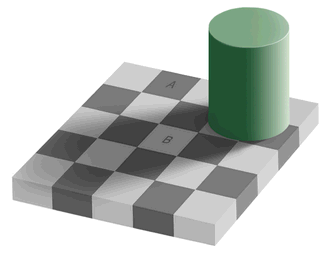 In The God Delusion, Richard Dawkins argues that God (probably) does not exist, and he associates belief in God with the childhood practice of having an “imaginary friend” (Dawkins 2006, p. 88). He advocates, as an alternative to belief in God, using science and evidence to develop useful models that replicate how the world works.
In The God Delusion, Richard Dawkins argues that God (probably) does not exist, and he associates belief in God with the childhood practice of having an “imaginary friend” (Dawkins 2006, p. 88). He advocates, as an alternative to belief in God, using science and evidence to develop useful models that replicate how the world works.
Although his argument has some validity, it is underpinned by a Western cultural premise that something is either real/exists or imaginary/unreal. This is a false dichotomy, created by the tendency in the modern Western mind to think in terms of simple opposites (Corbin 1972, p. 1). Imagination and reality are not alternatives, but imagination helps to create reality. This can be illustrated with three practical examples.
Illustration 1: Optical Illusion
In the picture above/right (published by Edward Adelson on a Wikipedia page), squares A and B are opposite colours – one is black the other is white. Can you see how this reality is created by your imagination?
Continue reading →


 In The God Delusion, Richard Dawkins argues that God (probably) does not exist, and he associates belief in God with the childhood practice of having an “imaginary friend” (Dawkins 2006, p. 88). He advocates, as an alternative to belief in God, using science and evidence to develop useful models that replicate how the world works.
In The God Delusion, Richard Dawkins argues that God (probably) does not exist, and he associates belief in God with the childhood practice of having an “imaginary friend” (Dawkins 2006, p. 88). He advocates, as an alternative to belief in God, using science and evidence to develop useful models that replicate how the world works.

